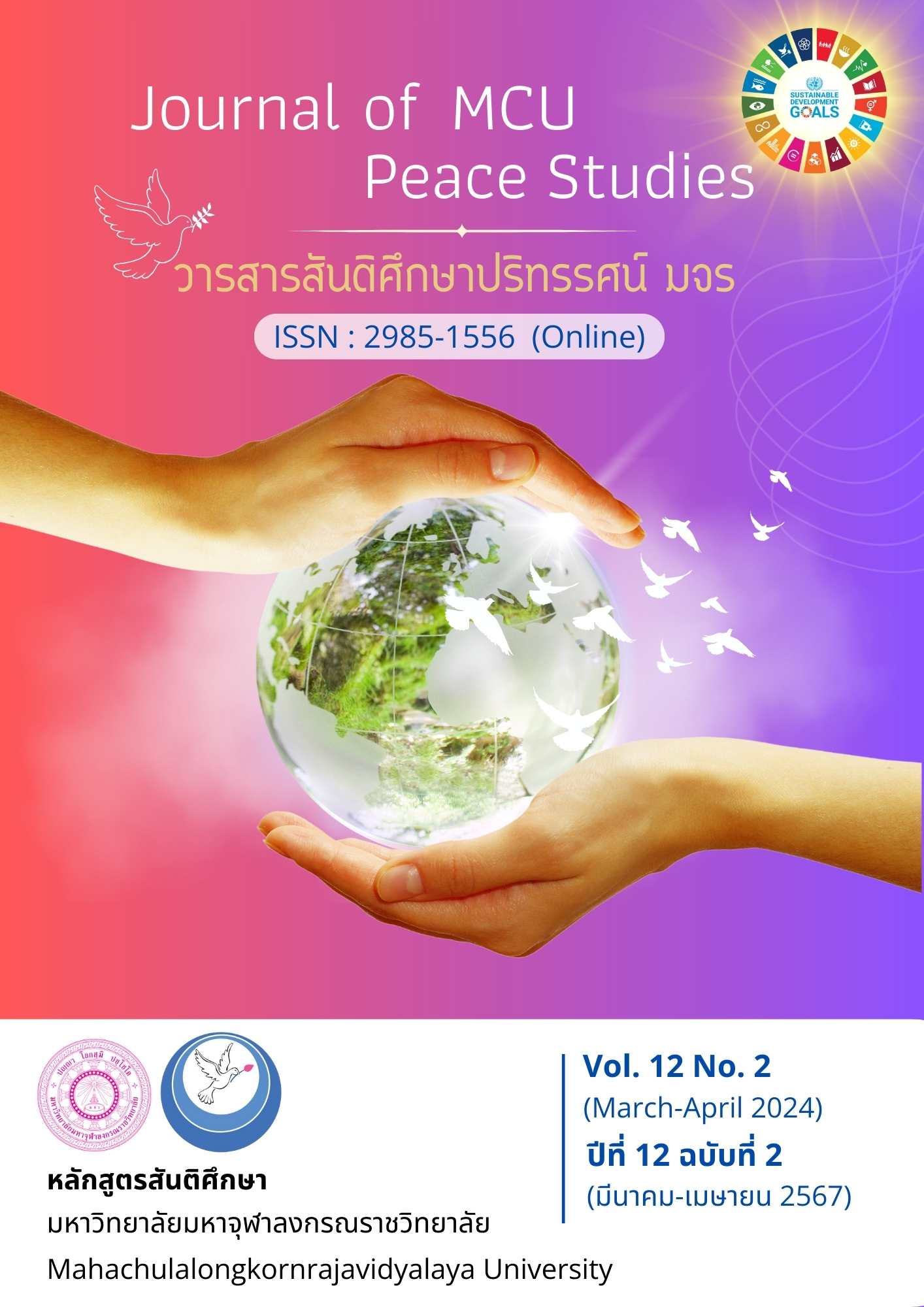Guidelines for Solving Drug Problems According to Buddhist Peaceful Means of Kudi Jeen Community
Main Article Content
Abstract
The research article consisted of the following objectives: 1) to explore problems of drug problems and the Buddhist peaceful means conducive to solving drug problems in Kudi Chin community; and 2) to present the guidelines for solving drug problems. The research findings would contribute to the development of a new body of knowledge on applying the Buddhadhamma to drug problems, which could then be extended to people interested in addressing drug problems in other communities in an integrated manner. The study used a qualitative research approach to obtain data from the following 15 key informants through in-depth interviews: community leader, community committee members, home police volunteers, community member, and those who had previously used drugs. The obtained data were analyzed by inducive method.
From the study, the results show that persons who desire to solve drug problems for society are considered as having good intentions for other people, wanting the society to be peaceful, and changing in a positive way. The major reason that community people get involved with drugs is a problem with their family-related backgrounds. The Buddhist peaceful means as the guidelines for solving drug problems in Kudi Chin community are based on Saṅgahavatthu (the four bases of social solidarity) as follows: 1) Dāna, which refers to giving and sacrificing one’s possessions in order to help others and alleviate their sufferings; 2) Piyavācā, which refers to pleasant speech in order to foster positive relationships; 3) Atthacariyā, which refers to conducting beneficial things to oneself and others; and 4) Samānattatā, which refers to conducting oneself in an equal and even manner.
Article Details

This work is licensed under a Creative Commons Attribution-NonCommercial-NoDerivatives 4.0 International License.
Views and opinions expressed in the articles published by The Journal of MCU Peace Studies, are of responsibility by such authors but not the editors and do not necessarily reflect those of the editors.
References
Department of Corrections. (2023). Report on Statistics of People in Prison for Drug Cases Throughout Thailand. Retrieved January 9, 2023, from http://www.correct.go.th/rt103pdf/report_result.php?date=2023-01-01&report=drug
Leeka, J. et al. (2019). The Buddhist Ethics for Prevention and Resolution of The Drug Problem of the Community in KhonKaen Province. Journal of Graduate MCU Khon Kaen Campus, 6(1), 73-85.
National Statistical Office. (2022). Statistics on Drug Cases in Thailand. Retrieved January 2, 2023, from http://ittdashboard.nso.go.th/preview2en.php?id_project=95
Phramaha Suphawich Prapassaro (Wiram), Nualnoy, P., Kongthip, A., & Phiriyasuvat, J. (2022). The Process of Building a Buddhist Consciousness in the Prevention and Surveillance of Drug Problemsalong the Border Loei Province. Journal of MCU Ubon Review, 7(2), 871-882.
Thavisin, N., Premcharoen, N., & Praphanphoj, N. (2018). The Participation of the Community Leaders to Resolve the Drug Problem in the Area Thawi Watthana District at Bangkok. Journal of Suvarnabhumi Institute of Technology (Humanities and Social Sciences), 4(1), 316-329.
Wattanapradith, Kh., Maeshee Suda Rojjanauthai, Suwanakkul, R., & Chaisuwan, Ch. (2020). Buddhist Innovation Drug Enforcement for Children and Youth through Community Participation. Journal of MCU Peace Studies, 8(3), 814-827.


